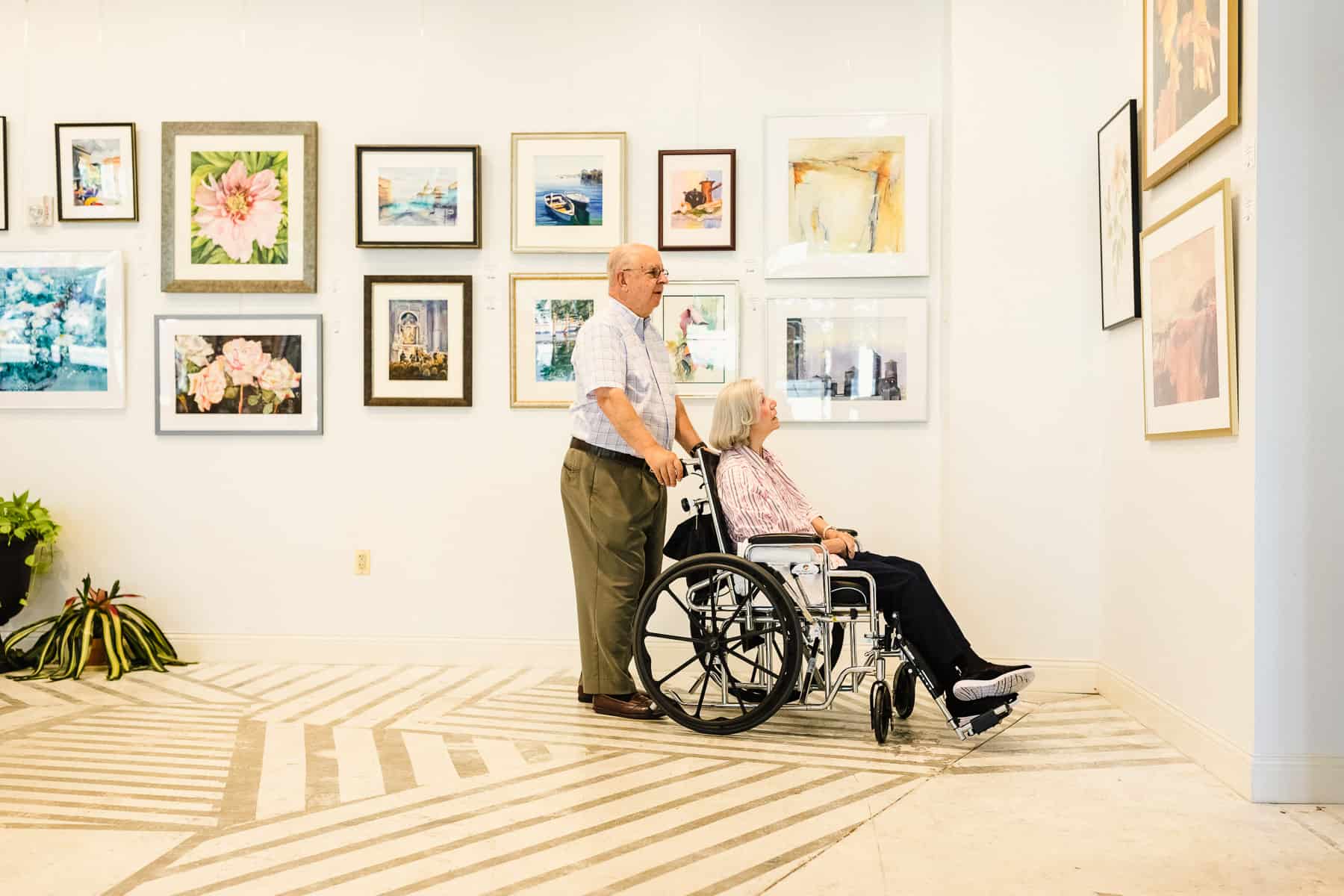For those who have a loved one with Alzheimer’s or dementia, it can be a tough circumstance to face. Caregivers are in the midst of trying to process their loved one’s condition, while also trying to provide the best care they can. When it gets to a certain point, a question soon arises: when is memory care necessary?
There are a number of behaviors or circumstances that can be indicators of a greater diagnosis like Alzheimer’s or dementia. Although senior moments are typical, we outlined five signs that show beyond the usual lapse of memory.
Drastic behavioral changes
The social butterfly your loved one has always been, has seemed to be less visible. Not attending church, or partaking in their usual activities due to a sudden lack of interest. Declining invitations more frequently along with a reluctance to do usual tasks such as driving are examples of withdrawal.
If your loved one was once cheery and famous for their one of a kind smile, but suddenly finds themselves more agitated, it could be frustration due to a deeper underlying cause. Daily hygiene is another area to pay attention to. If they are not shaving or bathing as often, this could also be a sign of something more.
Disorientation and confusion that affects overall safety
This is a serious matter of concern. Seniors with Alzheimer’s and dementia seem to forget the rules of the road and can get into accidents. They may try to go to the grocery store or the post office and get lost along the way. Places of deep familiarity should not be ones that are so easily forgotten, but the level of memory loss associated with Alzheimer’s and dementia can make it so.
Memory care communities offer a multitude of therapies that can help build upon their current cognitive ability and overall strength. Reminiscence therapy is centered around taking specific eras from their past that they may remember most, and utilizing photos, music, and other forms of media from that time period to help jog a happy memory.
Decline in physical health
A senior may find themselves forgetting to take their medication, or forgetting when they took it, and intake more than they’re supposed to. The danger of this is from the inability to manage their prescription routine.
A senior becoming noticeably more frail may not be eating enough, or forgetting to. Proper nutrition is something that in turn lessens a senior’s bone health and overall strength. A weakened body can affect their stability and in turn, bring on the risk of falls.
Questions to ask before seeking memory care
The onset of Alzheimer’s and dementia progresses in stages, with more advanced stages requiring around-the-clock care. The level of attention your loved one needs can seemingly be matched in a memory care facility. There are some questions to consider asking that will assess the situation and the overall wellbeing of your loved one.
- Is the environment safe for my loved one?
- Will their behavior likely cause harm to others?
- How does the senior needing care feel about the situation?
- What is the recommendation from a doctor or other medical professional?
- If I were my loved one, what would I want to be done for myself?
Memory care a Kensington Place
A memory care community like has specialized assisted living centered on catering to all levels of Alzheimer’s and dementia. Like Kensington Place, 24/7 care is through skilled staff that not only keep eyes on your loved one at all times, but ensure they are comfortable and feel at home.
Along with knowing your loved one would be in a safe environment, they are given the vital nutrients they need through a diverse dining menu. At Kensington Place, our in-house executive chef fills each day with options that not only give them the proper fuel, but entices the taste buds.
In memory care communities, the space is open for residents to move about and interact with others. A variety of enriching activities and group outings are a regular occurrence, and your loved one may find themselves delving into hobbies they never have before such as painting! Our art classes at Kensington Place not only bring on the chance to showcase creativity, but provide therapy for those who struggle to express themselves.
Routine, activities, and around the clock care are all the obvious benefits from the move into a dedicated memory care community. Kensington Place is different though, in the fact that we have a rooted promise to love and care for your loved one as we do our own.
We want to not only be there for caregivers who are overwhelmed with the position they are in, but ensure that the one receiving our care is truly feeling at home. If you would like to learn more about us, and have these questions we’ve listed above, we’d be happy to help you. Give us a call or schedule a tour today if you want to know what we can do to be your partners in memory care.
Further Reading:
Memory loss is life changing for all involved. At Kensington Place, we provide a state-of-the-art memory care program, a higher staff-to-resident ratio than industry standards, and more advanced care services. Our promise is to love and care for your family as we do our own.
For additional resources regarding your loved one’s condition, please read on about our Memory Care, Alzheimer’s Care and Dementia Care.



